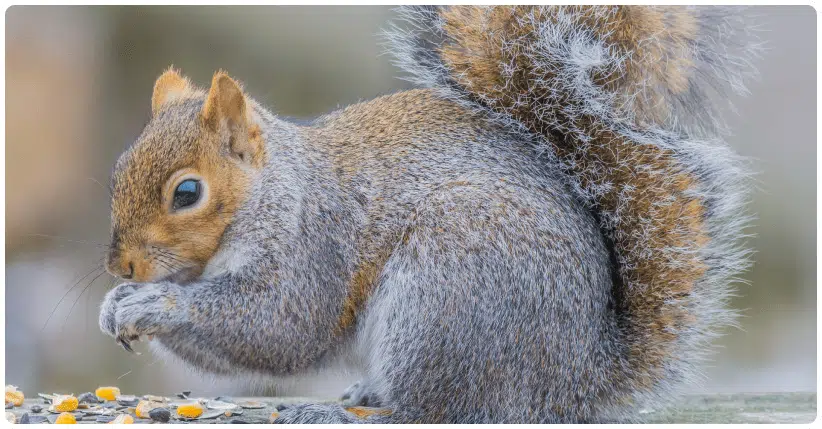People are the number one predator to most wild animals and not just from hunting and other detrimental practices. Sometimes, even the good hearted actions meant to help animals out, may inadvertently cause them harm. Here’s a guide to keep wildlife safe, as well as you, your family, and your pets.
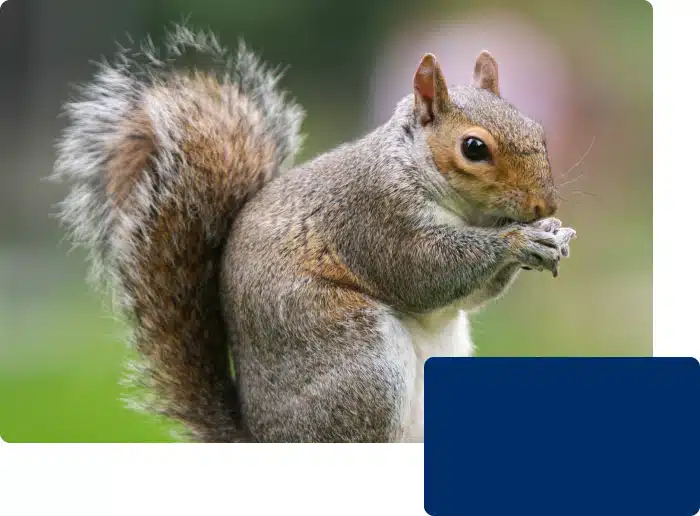
So, you want to know whether or not it is a good idea to put some food out for the squirrels you’ve seen around the neighborhood.
The answer to this question may seem pretty straightforward because, let's face it, it is hard not to root for them, especially during the winter when the food seems scarce. Who would not feel inclined to help them out? After all, what are a few nuts added to your shopping list?
However, there are a few reasons why this might not be a good idea after all, and they are not all related to your own interests, but the little creatures as well.

Who are your visitors?
- There are two common species present in the Northern Illinois Area: the Eastern Gray Squirrel (the most common one) and the Eastern Fox Squirrel (a little bit more orange than their gray cousin, but still fairly bigger than other native species).
- Eastern squirrels have the capacity to reproduce rapidly (up to two times a year, depending mostly on food availability), consume a diverse range of foods and become highly adapted to human activity.
- They are great climbers and voracious eaters that will find easier ways to stay nurtured and protected. And even though they nest in trees, they would move to human constructed structures if the opportunity comes up, especially if there’s a food source nearby (feeders, orchards, dumpsters)
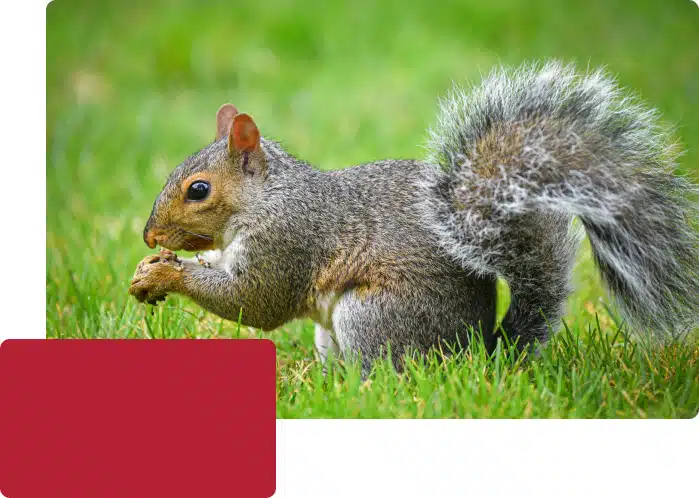

What are the risks of feeding Squirrels?
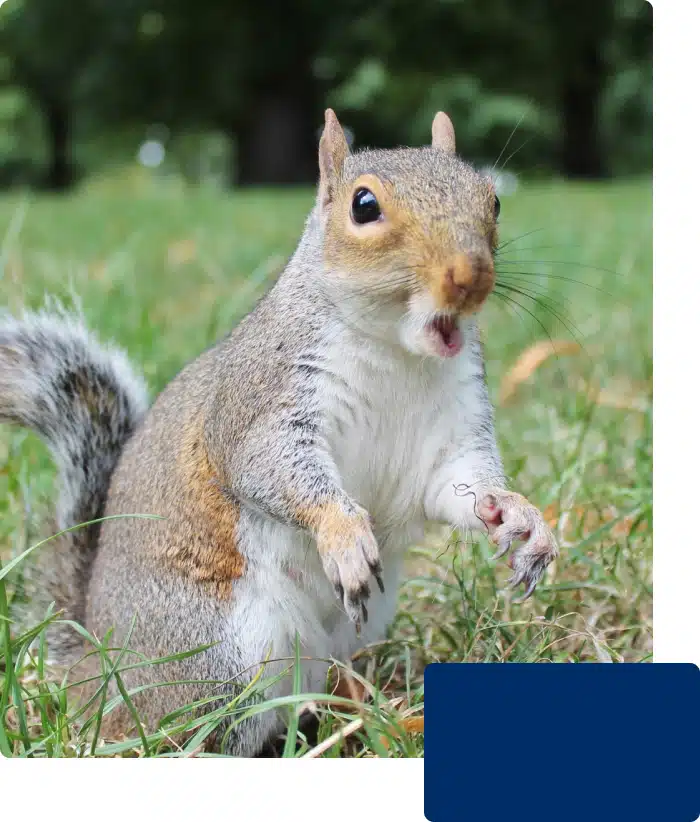
Conservationists largely agree that feeding wildlife brings mostly risks to the animals since they will quickly lose the fear of approaching humans, going against their instincts and therefore, compromising their safety. Remember, the most common predator for squirrels (all wildlife really) are humans.
Eastern Gray Squirrels will fight over food
Additionally, by feeding them, you might be promoting violent interactions between individuals that can result in them getting hurt. As you may already know, wild animals have considerably fewer chances of surviving if they sustain wounds.
Squirrels might carry diseases
Their feces can carry salmonella bacteria. And as far as diseases, they could transmit Tularemia, Typhus, Ringworm and Rabies.
Rodents can chew through almost anything
Squirrels’ teeth grow constantly throughout their life and are strong enough to grab onto almost any material. Wood, plastic, and other materials used in construction are not a problem for them. Naturally, some animals can cause more damage to your home than others, but the structural damage squirrels may cause could be well over the thousands if left unchecked.

What about Bird Feeders?
These days you'll find a range of bird feeders designed to avoid other wildlife raiders but, squirrels are problem solvers driven by a voracious appetite and there's a great chance they'll outsmart them. So you better save your pennies.
So, how can I help squirrels?
There are ways you can still positively affect wild animals' lives and protect them. Start by researching native trees that can provide shelter and food for squirrels and plant them in your area.
Observe them from afar: take binoculars to your excursions to Parks and reservoirs or even through your window (make sure to look for them in the mornings or afternoons when they’re more active and noisy).
Look out for their safety by inspecting your home (shed, garage, etc.) for possible rot that might become an entry point to the structure. Also, be on the lookout for vents and other openings.
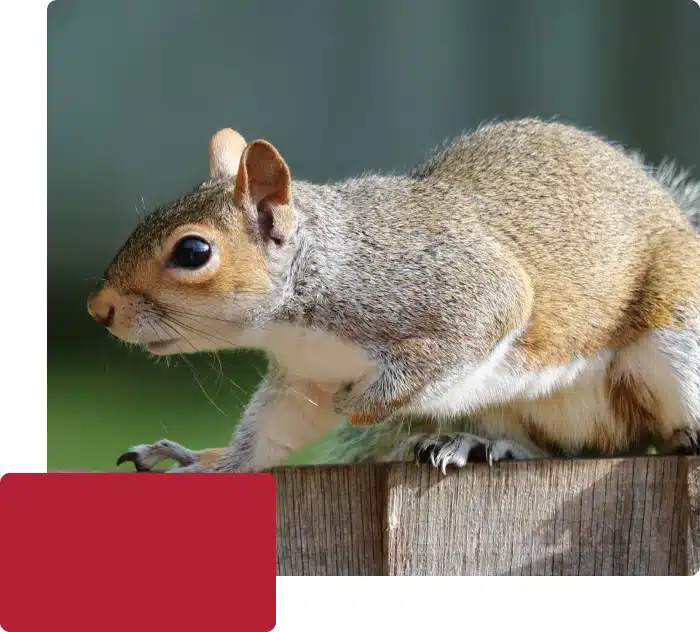
We recommend not to do these inspections on your own, since most entry points might be located out of your reach or in high, slippery, dangerous places like rooftops or gutter lines. You don’t want to get hurt pursuing the protection of squirrels so, contact AMPEST now to book a professional inspection.

What should I do if Squirrels are living in my house?
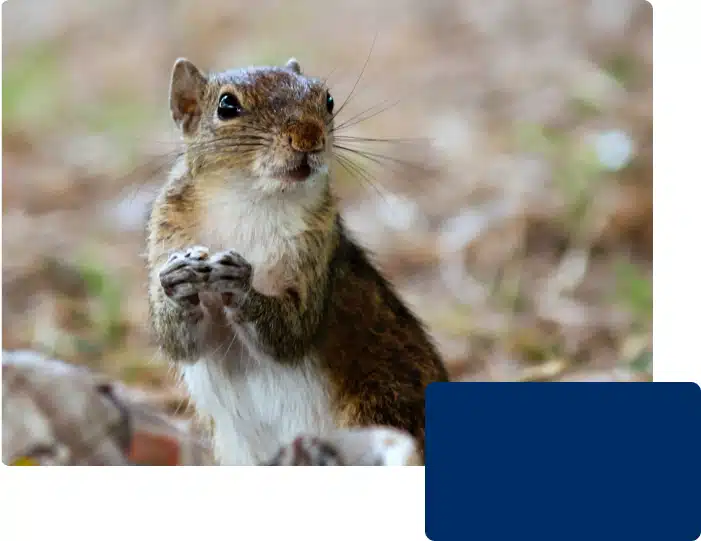
Not entirely sure?, check this list of signs that wildlife is living in your house.
If you suspect squirrels are already living under your roof (or shed or garage), it is very important not to try and trap them or move them without professional help since it is illegal and can result in contracting diseases. We even recommend against going near their droppings, so don't try to clean the area by yourself.
At AMPEST we provide affordable trapping programs and solutions that adapt to your particular situation and are conducted by Certified Professionals that will give humane treatment to all wildlife. Call us to find which trapping program is best for you.

Monday - Friday: 8:30am - 5:00pm
Saturday: 8:30am - 12:00pm
Contact Us
"*" indicates required fields

